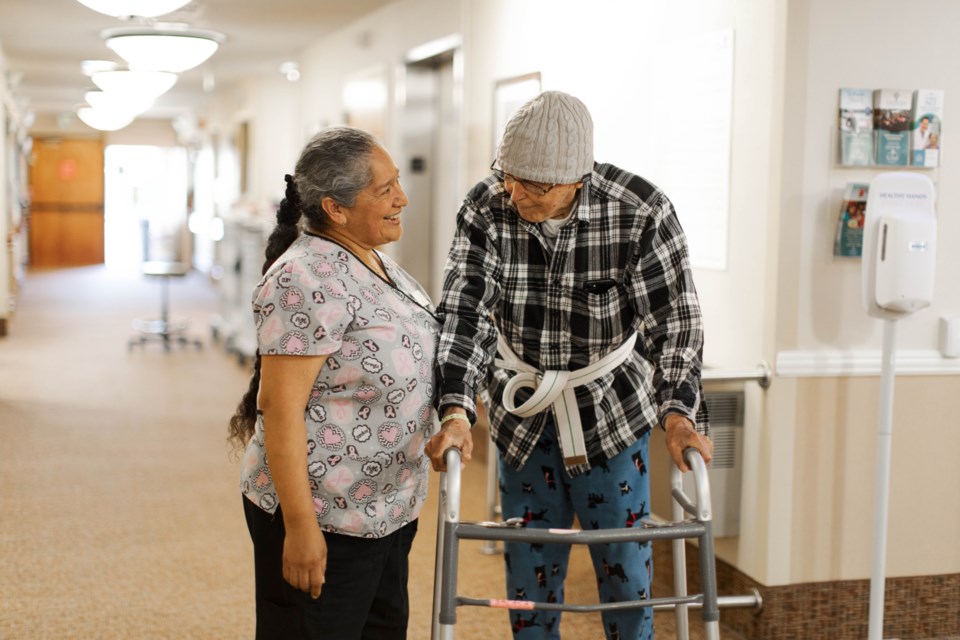On July 1, TRU Community Care in Lafayette, Colorado, and St. Paul’s Senior Services in San Diego, California, announced a new affiliation to expand care for older adults — especially those in the “hidden middle.” These are seniors who planned carefully for retirement, but now face unexpected and often high costs for care needed to live safely and independently.
Most have Medicare, which covers basic medical care but not long-term support with daily activities or extended nursing stays. Their incomes are too high to qualify for Medicaid but too low to afford private care, leaving many caught without affordable options.
Michael McHale, CEO of St. Paul’s, said the partnership is rooted in a shared mission to serve this vulnerable population.
“It’s not acceptable to see an older person living on the street who did everything right… paid their taxes, worked all their life, raised their families… but because as they get toward the end of life, they’ve spent all their resources, this is what they get,” McHale said. “Both organizations believe very strongly that that’s not acceptable. We have to do better.”
The affiliation combines administrative functions and shares expertise across hospice, home health, and housing services. By streamlining operations, they have saved about $500,000 annually; funds that will be reinvested to strengthen care.
Both operate Programs of All-Inclusive Care for the Elderly (PACE), providing coordinated healthcare and support. Bringing claims processing in-house and merging staff and technology reduced costs significantly, enabling the expansion of affordable housing and enhanced home-based services often out of reach for many seniors.
“TRU currently offers some housing and operates a memory care facility in Lafayette,” McHale said. “We hope to see them expand affordable senior housing, and we can bring our housing expertise to support that. While St. Paul’s doesn’t provide hospice, TRU’s extensive hospice knowledge can help us deliver the best care.”
They’re also leveraging technology, like telehealth and remote monitoring, to manage chronic conditions and prevent hospital visits.
“We’re investing in monitoring disease progression in the home,” McHale said. “Using Bluetooth-enabled devices to detect early changes and intervene before a hospital visit is needed improves quality of life and reduces costs [for seniors and their families].”
Supporting family caregivers is another priority.
“We depend heavily on caregivers… family, friends, neighbors… to help seniors thrive,” McHale said. Partnering with San Diego State University, TRU and St. Paul’s provide phone-based education and emotional support to equip caregivers with practical skills and resilience.
The affiliation has been welcomed by staff and community alike.
“People are excited that we’re putting our resources together with intention,” McHale said. “With funding cuts looming for Medicare, Medicaid, and Social Security, this partnership is more important than ever.”
Samantha Black, executive vice president of TRU Community Care, said that the work has a very personal meaning.
“All of us know somebody…a grandparent, an aunt or uncle, a neighbor…facing these challenges,” she said. “Seniors are living longer with complex illnesses and spending down their resources. They don’t always know where to turn. Our goal is to help them live well and safely as they age.”
For McHale and Black, this is more than operational change. It’s about community, sustainability, and compassionate care.
“The nonprofit philosophy is that our stakeholders are our patients, families, and communities,” Black said. “We absolutely want to and need to have a margin every year so that we can immediately reinvest in the community, in our staff, and in underfunded services. Our social contract and organizational mandate is to make sure folks who need care get it.”
Black said that the affiliation is especially important in a world where people — and especially seniors — feel more isolated than ever. “We want to remind them… and each other… that we still belong to one another,” she said. “That kind of community is what we have always stood for."



